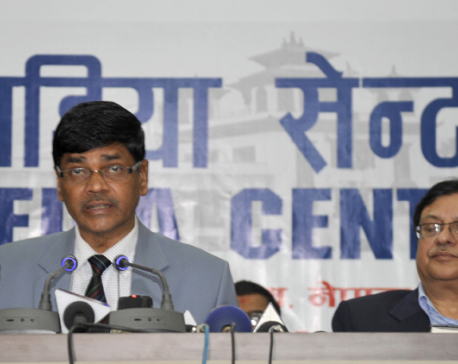
OR

It’s about time you acknowledge that your I-work-better-under-pressure is a defense mechanism for I-procrastinate-too-much. When we’re comfortable, tasks often feel like oppression. And we tend to put them off until the very last minute.
You might get the job done, but you know you could have done better had you had more time. So here are a few ways you can dedicate more time for your projects and spend less time scrolling through social media.
Time for a list
First, write down all the things you have to finish. Whether it’s your giant pile of laundry or that podcast you’ve been meaning to watch—write it all down. Make an elaborate list.
Now turn that list into a well-constructed schedule. Allocate time for each work as well as schedule breaks in the middle. If you can’t make schedules for a week, then simply start in the morning and make one for the day. This way, you won’t be using the classic “Oh, I forgot I had to do this” excuse.
When you put it down in writing, a part of you will feel obligated to complete it. Another reason why it works is because schedules break down how your day will look like. And if you’re satisfied with it, you won’t be intimidated by your idea of how much work is waiting for you at the end of the day.
Set deadlines for yourself
When you set a deadline for a task, you’ll feel obligated to complete it. Especially if the deadlines are closer to current time. If it’s an essay, tell yourself that you will finish it by the evening. If it’s laundry then make it a point to do it within two hours.
A set deadline is always better than a vague ‘some day’ or ‘after a while’ which, let’s be honest, will never arrive. If you have a hard time getting started on your work, try doing a countdown. 3,2,1, and off you go with the task.
Also, if you try to make your tasks pleasant enough, then they’re more likely to get done by the deadline.
Say goodbye to distractions
Another thing that constantly drags us back to the start is our tendency to get lost on the way. You’re writing an essay and boom, three minutes later, you’re looking at ‘Bollywood’s Worst Nepotism Cases’ on YouTube. Distractions are the worst. So try getting rid of them temporarily.
If you have to give away your phone, do it. If you have to shut down the electricity to finish folding your laundry, do it. If you need to put your phone on app lockdown, then do just that.
Sometimes, distractions arrive in other forms—like noisy roommates or enthusiastic younger siblings. Handling this is quite easy. Simply change your environment. Head to a library or a nearby restaurant with free Wifi. Don’t let small, menial things in your life stop you from finishing what you’re supposed to.
Tell a partner
If you’re one of those incapable of holding yourself accountable or living up to your promises, then it’s not a bad idea to involve someone else. It’s more likely that you’ll get things done—not for yourself—but for someone else. While it is an extremely co-dependent thing to do, it wouldn’t be a problem if it’s only for short-term goals.
You wanna head to gym? Get a friend to go with you. Chances are you’ll feel less self-conscious that way. You wanna finish a book? Buddy read it with a book-lover. They’ll motivate you and keep you engaged in the story.
If you can’t do it yourself, it’s okay to seek inspiration from someone else. If someone else is holding you responsible for your actions, you’ll feel obligated to finish what you start.
Watch a motivational video
The worst thing about motivational videos is how unsustainable their effect is. It’s a burst of inspiration for an hour and complete guilt and numbness for the rest of the day. But you can use this to your advantage.
One of the biggest reasons behind procrastination is demotivation. So if watching a small speech on Ted Talk will give you enough energy to make your bed, why shouldn’t you watch it? Why not make full use of the small spark of life these countless videos can light in you?
If it gets the job done, if it helps you finish the things in your to-do list, it wouldn’t be such a bad thing now, would it?
A reward at the end
Pavlov’s theory of reward and punishment might work for you. So, save a reward for yourself at the end of each task. It could be anything—a half-an-hour break, a slice of pizza, or an episode of your favorite TV show.
The possibility of the reward might keep you going and motivated. If you’re one of those who will cave in to temptation and get to the prize before you finish the task, then, once again, make sure someone else will be holding on to the reward for you instead of it just being there. It might give you the needed inspiration to finish everything at hand.
You May Like This

Routines galore
There is little difference among news channels in story selection and display. They differ only in explanation of their decisions ... Read More...

Beauty routines
We all want perfect skin but unless you were born with the right genes perfect skin is unattainable. But that... Read More...





Just In
- MoHP cautions docs working in govt hospitals not to work in private ones
- Over 400,000 tourists visited Mustang by road last year
- 19 hydropower projects to be showcased at investment summit
- Global oil and gold prices surge as Israel retaliates against Iran
- Sajha Yatayat cancels CEO appointment process for lack of candidates
- Govt padlocks Nepal Scouts’ property illegally occupied by NC lawmaker Deepak Khadka
- FWEAN meets with President Paudel to solicit support for women entrepreneurship
- Koshi provincial assembly passes resolution motion calling for special session by majority votes






_20220508065243.jpg)






Leave A Comment